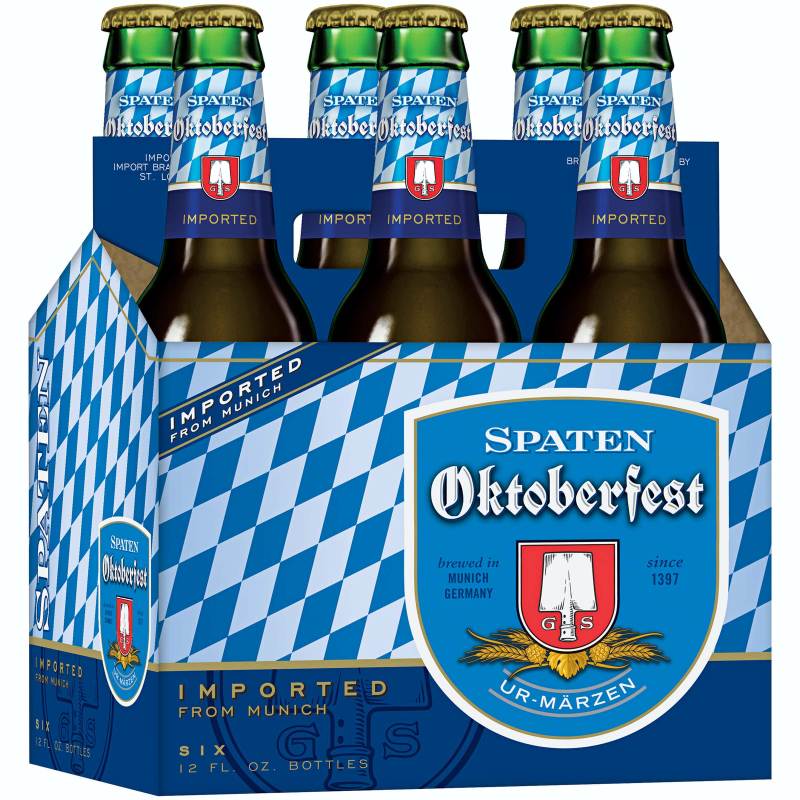If you’re a beer drinker or simply a fan of fall activities, you probably look forward to Oktoberfest every year. This popular beer-based holiday perfectly bridges the gap between summer and fall with crisp, refreshing, malty beer, Oompa music, and traditional German foods. But even though you celebrate it every fall, do you really know anything about this holiday? What is Oktoberfest, exactly, and why is it celebrated annually?
Oktoberfest shares some similarities with Cinco de Mayo and St. Patrick’s Day in that they are all alcohol-based holidays with mysterious histories. Many people falsely believe that we enjoy Mexican beers, tequila, and cheesy, meaty tacos on Cinco de Mayo to celebrate Mexico’s Independence Day. It’s the date to remember the Mexican victory over France in the Battle of Puebla.
St. Patrick’s Day isn’t just a day to drink green beer and Irish whiskey and eat corned beef and cabbage. It’s also not a date to pay tribute to a man driving all the snakes out of Ireland. While its origins are more mysterious than other holidays, it’s believed St. Patrick’s Day is celebrated on March 17 each year because this was the date (in 461) when St. Patrick died, according to legend. This brings us to the reason for this story: Oktoberfest.
What is Oktoberfest?

In the most basic sense, Oktoberfest is an annual festival that takes place in Munich, Germany. Lasting for 16 days, it’s the world’s largest beer and folk festival, with more than six million revelers attending every year. The event features beer tents where you can hoist a beer stein, listen to traditional music, and eat mouthwatering German foods like bratwurst, schnitzel, giant pretzels, and more. On top of that, there’s a whole concourse featuring carnival rides. Additionally, there are various competitions like stein hoisting, costume contests, and various other events.
Why is it celebrated?

While it might seem that the people of Bavaria simply wanted to start a festival where they could drink beer, eat delicious food, and dance to their heart’s content, there was an actual reason why Oktoberfest was first celebrated.
The first Oktoberfest was held on October 12, 1810, to celebrate the marriage of Crown Prince Ludwig of Bavaria and Princess Therese of Saxony-Hildburghausen. The first Oktoberfest included horse races, food, and various games. They even named the site of the event “Theresienwiese” which translates to “Theresa’s meadow” and decided to hold an annual festival there year after year. And save for a few years off during world wars and for other events (COVID), Oktoberfest has been held every year since.
When is it?

As we mentioned earlier, Oktoberfest lasts for a full 16 days of beer drinking, currywurst eating, and Oompa dancing. But you might be surprised to learn that it isn’t celebrated on the same dates every year. It begins that Saturday after September 15 and lasts until the first Sunday in October. This year, the festival begins on September 21 and lasts until October 6.
What are the breweries included?

If you didn’t know it, you might assume that all German breweries are present at Oktoberfest. But because it’s in Munich, there are six official participating breweries. All of which are located in the city. They are Löwenbräu, Spaten, Hofbräu, Augustiner, Hacker-Pschorr, and Paulaner. And while there are 14 tents at Oktoberfest, they only serve beer from the above breweries.
Where can you celebrate Oktoberfest in the U.S.?

If the idea of booking a plane ticket and flying to Munich isn’t in the cards for you, there are still ways to enjoy a stein of crisp German beer, a plate of Bavarian food, and entertaining accordion music. This is because there are countless Oktoberfest celebrations littered throughout the U.S.
Some of the most well-known celebrations are located in Cincinnati, Ohio, La Crosse, Wisconsin, Helen, Georgia, Leavenworth, Washington, and more. If you aren’t within driving distance of any of these events, a simple Google search will let you know the closest events. The holiday is so popular that you’re almost guaranteed to find an Oktoberfest celebration near you.
Bottom line

If you’ve never been to an Oktoberfest celebration, what are you waiting for? What could be better than an event featuring delicious, refreshing beer, tasty food, and jovial, inviting music? Find your nearest event and mark it down on your calendar. Make a point to stop by this year. We guarantee you’ll be happy with your choice. You might even have so much fun that you’ll end up dressing in Lederhosen, hoisting a stein bigger than your head, and leading the band next year.




